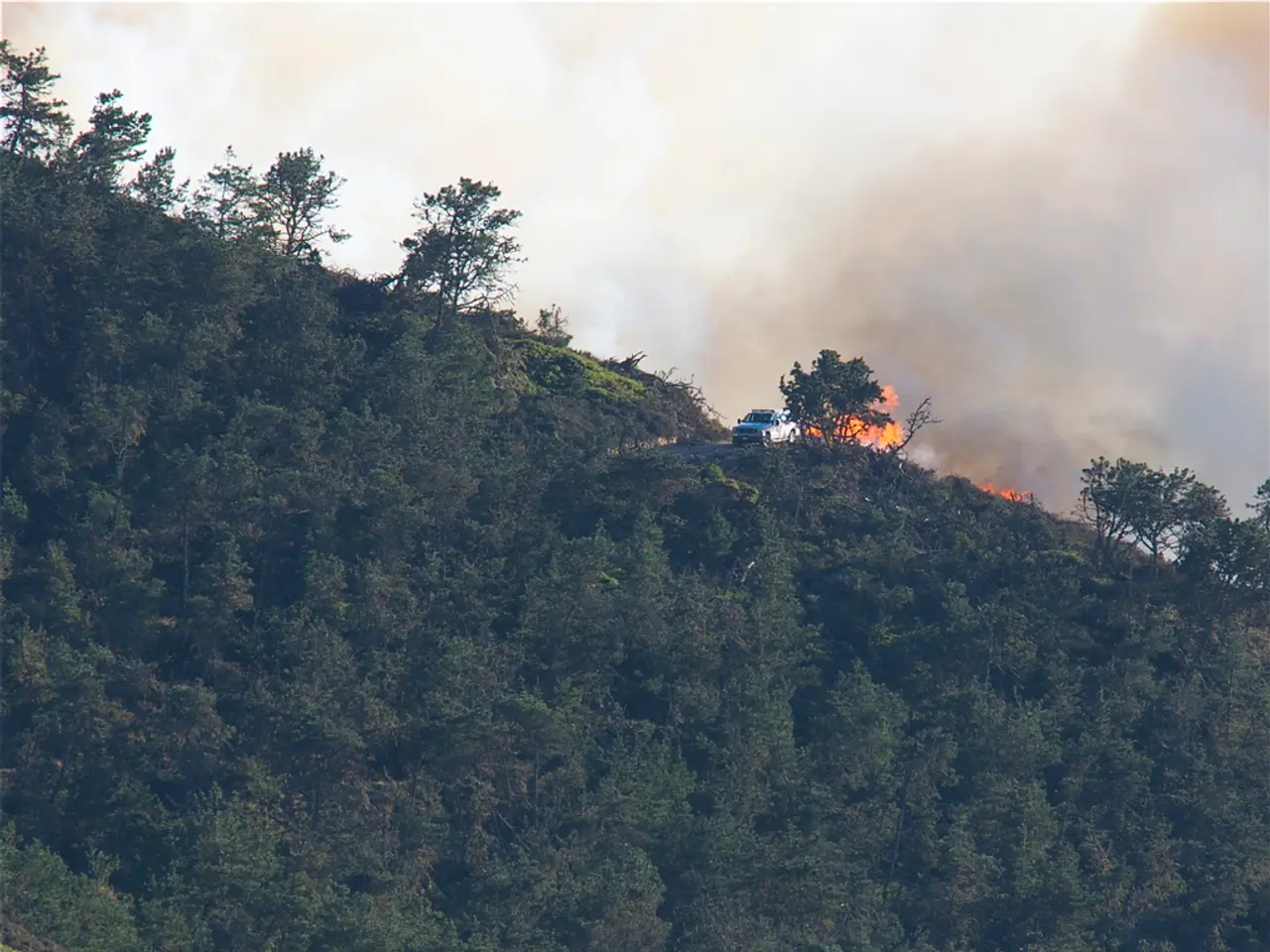Anticipated Heatwave: Predictions Point to Summer 2025 as the Most Scorching on Record
As weather models predict that summer 2025 could be the hottest ever recorded, experts are urging individuals, communities, and governments to take action in preparing for the extreme heat. This summer, many parts of the country have already experienced temperatures in the 30-degree range for seven consecutive days, with the highest recorded temperature in June reaching up to 40 degrees.
To ensure the safety and wellbeing of all, a combination of individual, community, and governmental actions focused on safety, health, and resilience is necessary.
## Individual Preparedness
Staying hydrated and cool is crucial during extreme heat. Drink plenty of water, avoid strenuous activity during peak heat, and spend time in air-conditioned spaces whenever possible. Fans are not a substitute for air conditioning in extreme heat. Dress appropriately by wearing lightweight, light-colored, loose-fitting clothing and using sunscreen to protect against sunburn. Recognise symptoms of heat-related illness such as heavy sweating, weakness, dizziness, and act quickly if they occur. Frequently check in on children, the elderly, pregnant women, and people with chronic health conditions, as they are at higher risk for heat-related health problems. Prepare your home by using window coverings to block sunlight, sealing windows and doors to keep cool air in, and considering portable air conditioners or fans if central air is unavailable.
## Community and Governmental Actions
Providing cooling centres, such as libraries, community centres, and malls, for people who do not have access to air conditioning at home is essential. Increasing tree planting and green spaces in urban areas, especially in low-income and minority neighbourhoods, can help reduce the effects of heat islands. Public awareness campaigns should educate the public about the risks of extreme heat and how to protect themselves and their communities. Local governments should have plans in place to respond to heat emergencies, including outreach to vulnerable populations. Ensuring access to clean drinking water for all, including unsheltered populations, is also important.
## Infrastructure and Environmental Measures
Upgrading building codes to encourage energy-efficient building designs that retain cool air and use reflective surfaces to reduce heat absorption can help mitigate the effects of extreme heat. Investing in solar and other clean energy sources can reduce the strain on the power grid during periods of high demand. Incorporating cool roofs, green roofs, and permeable pavements into city planning can lower ambient temperatures.
## Health and Social Considerations
Monitoring air quality is essential, as high temperatures often coincide with poor air quality, which can exacerbate respiratory and cardiovascular conditions. Developing early warning systems to alert residents of extreme heat events and provide guidance on how to stay safe is crucial. Economic support, such as financial assistance or subsidies for low-income households to afford air conditioning or home cooling upgrades, can help ensure everyone has access to the necessary resources to stay cool.
By adopting a comprehensive approach that addresses both immediate safety and long-term resilience, communities can better protect individuals—especially the most vulnerable—from the health risks posed by the anticipated extreme summer heat of 2025. In some local areas, elderly people and young children are particularly vulnerable to the extreme heat, and avoiding heavy physical work around midday is also recommended. The extreme heat in June is a precursor to what could happen during summer 2025, and it is essential to take action now to ensure everyone's safety.
[1] National Institute of Environmental Health Sciences. (n.d.). Extreme Heat. Retrieved from
[2] Centers for Disease Control and Prevention. (2020). Extreme Heat: A Prevention Guide to Promote Your Health. Retrieved from
[3] World Health Organization. (2018). Urban Health: Extreme Heat and Health. Retrieved from
[4] United States Environmental Protection Agency. (2021). Heat Island Effect and What You Can Do About It. Retrieved from
The science of climate-change and environmental-science stand as crucial in understanding the anticipated extreme summer heat of 2025, which could be the hottest ever recorded. With the weather models indicating a scorching summer, it becomes necessary to implement the recommendations from these disciplines to ensure everyone's safety and wellbeing.








